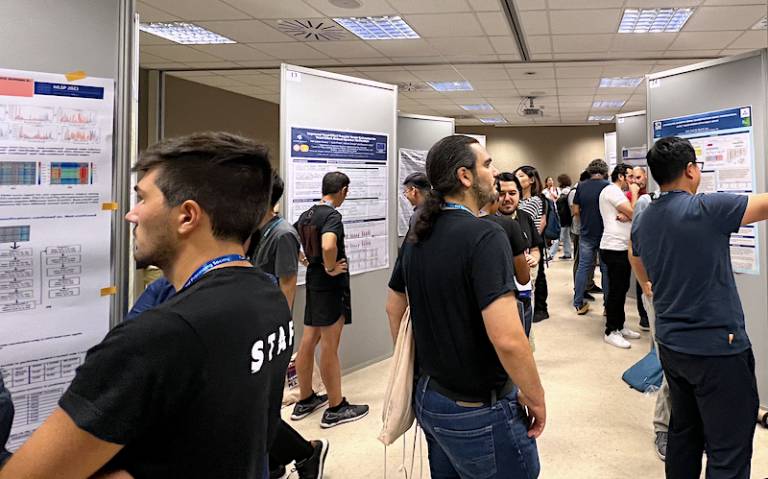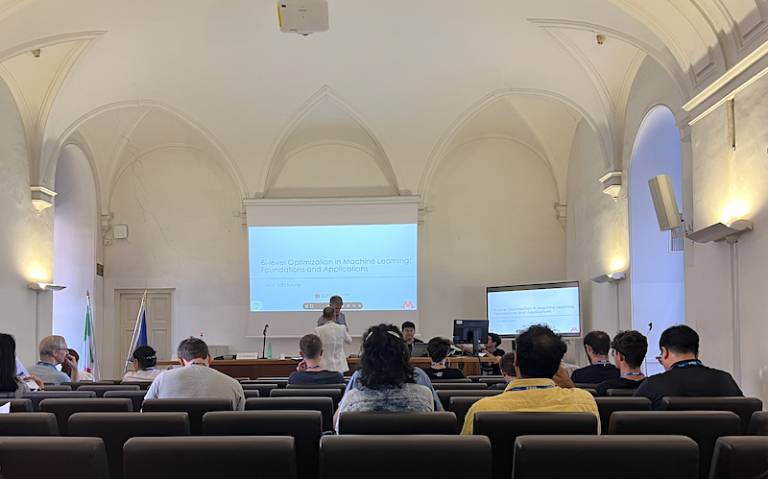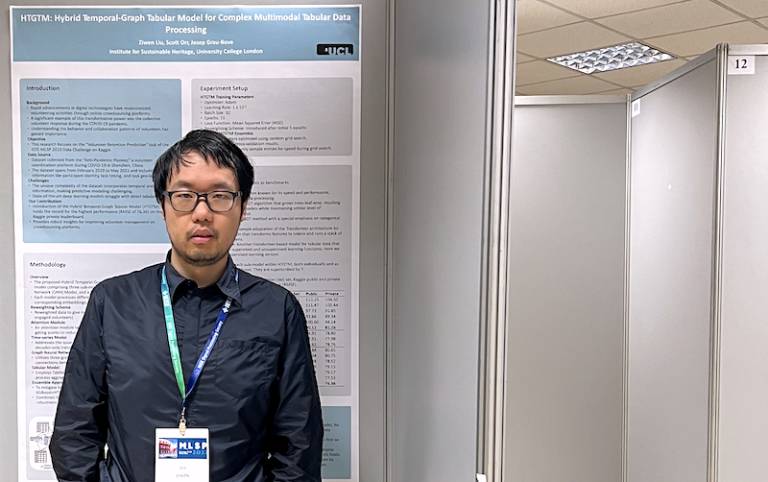UCL Institute for Sustainable Heritage PhD student blog explores AI and machine learning in heritage
24 October 2023
PhD student Ziwen Liu writes about the 2023 IEEE International Workshop on Machine Learning for Signal Processing (MLSP) conference in Rome, Italy

A blog by Ziwen Liu
As a third-year doctoral researcher in the field of machine learning and social media analysis, attending an academic conference in person had always been on my academic bucket list.
Luckily, in my third PhD year, I had the opportunity to attend a 3-day academic conference, Machine Learning for Signal Processing (MLSP), in the heart of Rome. Here, I'd like to share my experiences, from brilliant tutorials to inspiring keynotes, and everything in between.
Day 1: the conference began with a day of brilliant tutorials, setting the stage for what would be a knowledge-packed event. Topics centred around bi-level optimization and model-based deep learning, which immediately piqued my interest. The day concluded with a keynote on "Multivariate Measures of Statistical Dependence," leaving us all eager for what lay ahead.

The official start of the conference brought a series of opening talks, with Klaus-Robert Müller delivering a keynote that left us all in awe. He conceptualized the "AI for Science" paradigm, painting a vivid picture of the future of artificial intelligence and its potential impact on academia. The day ended with a guided walking tour from the conference centre near the Trevi Fountain to Piazza Navona, a delightful blend of academia and Roman culture.
Day 2: the second day was a whirlwind of lectures covering diverse topics. From "Multiview Representation Learning for Machine Learning" to "Efficient Bayesian Methods for Signal Processing" and "Explainable and Reliable Machine Learning," each session was a treasure trove of insights. Mihaela Van Der Schaar's keynote on using AI to generate explainable differential equations for healthcare and economics was particularly eye-opening. It left me pondering the incredible potential of AI in these domains. Also, the poster session was a hub of activity, drawing curious minds and sparking lively discussions.
 UCL Institute for Sustainable Heritage PhD student Ziwen Liu
UCL Institute for Sustainable Heritage PhD student Ziwen Liu

Day 3: unfortunately, Day 3 brought an unexpected twist as I caught a cold. Despite this setback, I was determined not to miss out on the conference experience. I soldiered on, attending my poster session and introducing my work to the audience. Their questions and discussions were both challenging and rewarding, showcasing the collaborative spirit of academia.
In retrospect, this conference was not just about academic knowledge but also about personal growth. It was my first time attending an in-person academic conference, and it was a memorable one. Despite my illness, being able to socialize with fellow students and researchers was an enriching experience. Moreover, listening to keynotes from top scholars, such as Klaus-Robert Müller and Mihaela Van Der Schaar, left an indelible mark on my academic journey.
In conclusion, my three-day academic conference in Rome was an incredible journey filled with intellectual stimulation, inspiration, and even a bit of adversity. It reinforced my passion for my research area and the importance of academic gatherings in fostering collaboration and learning. As I return to my doctoral work, I carry with me the knowledge and memories from this conference, excited about the future of academia and the continued exploration of my research.
Image credit(s): Ziwen Liu
 Close
Close

